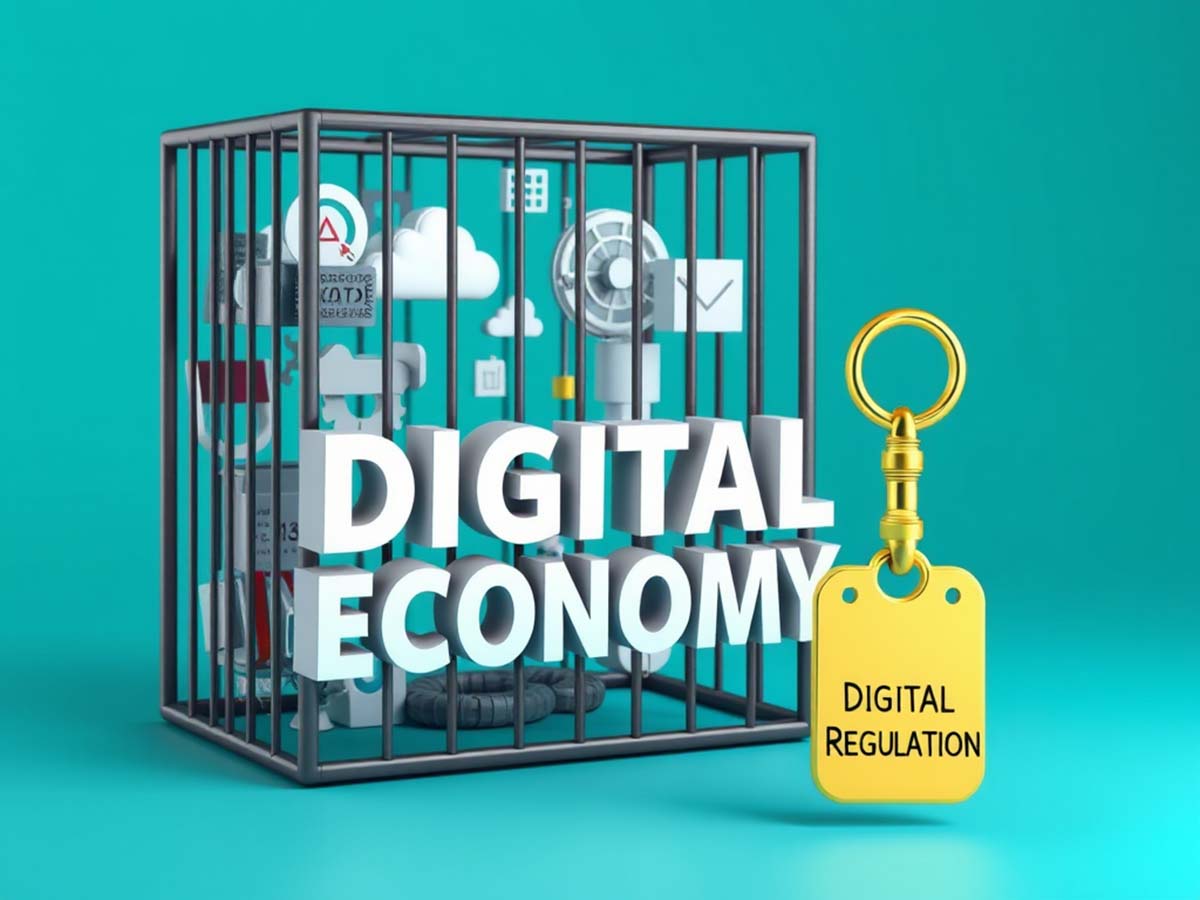
The digital world is changing fast. Many people feel the impact of these changes in their daily lives. Recent discussions about the Digital Economy Bill and the shifts in policies have caught the attention of businesses, content creators, and social media users. These changes affect the way information flows and how businesses operate online. It is a topic that resonates with those who use the internet for work, learning, or simply staying connected.
Why It Matters
Every day, millions of people use digital platforms to share ideas, connect with friends, and run businesses. The Digital Economy Bill is designed to shape the rules for these online activities. Its influence reaches many corners of society. The policies included in the bill may affect how data is used and how companies must manage their online presence. This means that a change in the law can have a direct impact on how safe and fair the digital space will be for everyone.
When new policies are introduced, many stakeholders must adapt their practices. For instance, small business owners might need to update how they handle customer data. Content creators could see shifts in how they earn money from their work. Social media users might notice changes in the privacy settings or advertising methods used by platforms they frequent. These examples show that understanding the bill is more than just reading legal jargon—it means being aware of changes that could affect day-to-day online activities.
Understanding the Digital Economy Bill
The Digital Economy Bill sets out guidelines for digital operations. It aims to create a framework that supports both innovation and safety. Here are some key areas that the bill touches upon:
- Data Handling: New rules may change how companies store and use data.
- User Rights: The bill might provide clearer rules about what users can expect when they use digital services.
- Business Obligations: Companies may need to adjust how they work to comply with updated policies.
- Market Practices: Changes could influence how online transactions are conducted.
This list gives a brief idea of the areas influenced by the bill. Each of these points carries implications that will touch many aspects of online life.
Policy Shifts That Change How We Do Business
Policy changes can be a turning point. They may affect businesses of all sizes. Many companies are already discussing how to adapt. A shift in policy can open new opportunities for those who are ready to adjust their strategies. For example, a firm that makes software might have to change the way it collects customer feedback. At the same time, the same change might create a safer environment for users by ensuring their data is handled with greater care.
Business owners and digital content creators often feel a mix of excitement and uncertainty. There is the chance to adopt better practices. At the same time, change means adjusting long-held habits. Many find that the key to success is understanding both the technical details and the broader impact of the new policies. Conversations among peers, participation in webinars, and attending community meetings are common ways to learn about these shifts.
These policy shifts encourage a culture of transparency. They can help foster trust between companies and users. When rules are clear, everyone knows what to expect. This sense of fairness is valuable, especially in an era when misinformation can spread easily online.
Impact on Businesses and Social Media Users
The effects of the Digital Economy Bill are not limited to one group. Both businesses and everyday users feel the change. Consider a small online shop that relies on social media to reach customers. New guidelines about data usage might require the shop owner to modify how they collect customer information. This could lead to better data security and improved customer trust.
For social media users, these shifts could mean changes in how their personal data is managed. Users may have more control over what is shared and with whom. The bill could also lead to more responsible advertising practices. When businesses adjust their methods to follow new guidelines, users may notice fewer misleading ads or promotions.
A few real-life examples can help clarify these changes:
- A local retailer found that updating its data policies helped improve customer feedback.
- A content creator noticed that clearer rules on content sharing made the platform more reliable.
- A small business owner experienced smoother transactions after adapting to the new market practices.
These stories show that while change can be challenging, it often leads to a better, more secure digital experience.
Real-Life Examples and Anecdotes
One online entrepreneur shared a story about how the shifts brought a positive change to their business. This individual operated a blog and an online store. They explained that clearer policies helped them understand customer expectations. The owner adjusted privacy practices and saw an increase in user trust. This led to more engagement on the blog and higher sales in the store.
Another example comes from a social media influencer. They had long been worried about how data might be used by platforms. After the new policies were introduced, the influencer felt more comfortable sharing content. The updated guidelines offered reassurance that the platforms would safeguard their personal information. This confidence helped them focus on creating content that their audience loved.
A small community group also benefited from the changes. The group organized local events and used online tools to spread the word. With better rules in place, the group found it easier to manage event registrations and communicate with members securely. Their experience shows that policy shifts can lead to improved digital interactions for everyone.
How Policy Shifts Create Better Experiences
When laws change, they often aim to improve how society functions. The Digital Economy Bill and related policy shifts seek to create a more balanced online space. This means that both users and businesses get a fair deal. A safer digital environment can lead to more creativity and trust. Many believe that with better regulations, the internet can be a place where ideas grow without fear.
The new policies emphasize simplicity and clarity. They remove some of the confusing aspects of older regulations. This makes it easier for everyone—from tech experts to casual users—to understand their rights and responsibilities. The improved clarity can reduce disputes and encourage cooperation among all parties involved.
Digital policy shifts also encourage companies to re-evaluate their strategies. Businesses that take the time to understand the changes may find new opportunities. They can improve how they serve customers and create stronger bonds with their audience. This positive effect on customer relations can lead to better performance and a healthier online marketplace.
Looking Ahead
The digital world is never static. Laws and guidelines must keep pace with rapid changes in technology and user behavior. The Digital Economy Bill is a step toward a safer, more reliable digital environment. As policies shift, businesses and users alike must stay informed. Regular updates and ongoing discussions will help everyone adapt to the new standards.
There is a growing sense of community among those affected by these changes. Many online groups and forums discuss the latest updates and share experiences. This collective learning helps smooth the transition for all. Being part of this conversation can provide valuable insights and practical tips.
New policies also inspire further innovation. As businesses adjust to the rules, creative ideas often emerge. These ideas can lead to improved services and better experiences for users. The changes in policy might encourage companies to think in fresh ways about digital marketing, data management, and customer service.
One small business owner noted that the policy updates led to a significant improvement in customer interaction. By carefully reviewing the new guidelines, the owner was able to tailor services to meet expectations. This proactive approach resulted in a more positive experience for both the business and its customers.
Another digital content creator mentioned that the clarity of the new rules helped them focus on what they do best. They spent less time worrying about compliance and more time engaging with their audience. This shift in focus has allowed them to build a more authentic connection with their followers.
The changes also promote an open conversation about digital rights. As policies become clearer, users find it easier to trust the platforms they use. This trust is the foundation for a healthier digital society. Everyone stands to gain when the rules are fair and transparent.


No Comments